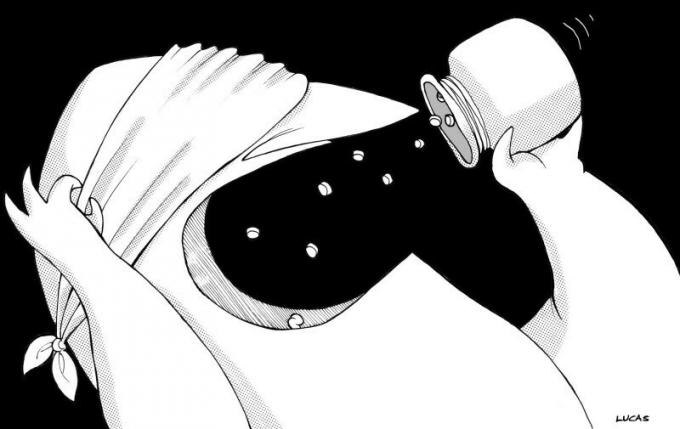The negative effects of self-medication
One of the consequences of the current pace of life and the high demands to which we are constantly exposed, is the increase in chronic stress, as well as bouts of depression Y anxiety in population of all age ranges.
Associated with these social variables, we also have other personal variables that exacerbate these states, such as a Low tolerance to frustration or negative emotions, or a bad approach to personal experiences or complex feelings that affect us on a daily basis. In today's society, one of the most common resources to deal with psychological discomfort in the face of many of these pressures is self-medication with psychotropic drugs, which can lead to abuse of it and become an added problem.
But: are psychotropic drugs necessary?
On many occasions they are. Psychiatric medication can be of great help to address a psychological or behavioral problem at a specific and specific moment in the person's life. Let us remember that this type of substance has as its main function to regulate the action of certain neurotransmitters, improving some of the symptoms suffered by the affected person.
In addition, in mental disorders patients in which there is a high mismatch, we know that medication is strictly necessary and that it plays a crucial role in adaptation of the patient, although the psychological and family intervention that usually accompanies this type of cases.
The psychological effects of self-medicating with psychotropic drugs
However, in many other cases, the use of drugs is being excessive and misdirected as the solution to psychological discomfort that arises in the face of daily problems or symptoms that do not justify its use. The prescription of psychotropic drugs must be prescribed by a doctor and accompanied by additional psychological treatment if long-term improvements are to be maintained. We know a lot about the physiological side effects of the use of these drugs, but it is relevant to also highlight the psychological side effects that remain in the person level of self-efficacy or perception of problem solving.
Most of the problems that create suffering in patients who ask for help are psychosocial in origin, not biochemical in origin, so that if the true cause and origin of the problem is not found, it will be difficult to reach a solution, and the drug cannot be withdrawn either (whose purpose is the temporary stabilization of the symptom, and not chronic medication as a sustained solution).

Consuming drugs without professional control: a real Russian roulette
The real problem of self-medication is the use of drugs on their own initiative, without a medical prescription, control or professional diagnosis associated with such drug. It is a practice that we have very normalized as a way of covering symptoms with some immediacy, how many of we have taken a pill for a headache, back pain or to sleep at some point in our lifetime? In these cases in which we treat a cold, a specific annoyance, we would be talking about a responsible and time-limited self-medication.
Problems begin when self-medication is prolonged in excess or established as a resource to control a symptom annoying, but without treating the origin of it. It is common in such a case that the person believes that he needs such medication to function in his day to day or face her problems. Specifically, and especially, we refer to antidepressant, anxiolytic and hypnotic psychotropic drugs whose consumption It is normalizing in the medium and long term when the drug's own indications have time limits of use.
Effects (physical and psychological) of the bad habit of self-medicating
Apart from the typical effects on a physical level when a chemical is consumed, we will point out the tolerance, abstinence Y dependence resulting when some of these drugs are taken uncontrollably for long periods of time.
However, the most important effect that we want to highlight is on a psychological level, due to the lack of control or responsibility for improvement. The consumption of drugs for the resolution of psychological problems facilitates the development of what is known as external locus of control by diverting the improvement to an external resource independent of the person. A patient with symptoms of depression or anxiety may learn that they need medication to be better and act on his state, not learn that he is capable of acting on his state to to get better. Sometimes This effect can make it difficult for the patient to progress by not acquiring the necessary resources to solve a certain situation on their own.
Examples and possible solutions
Let's take an example, a person with a certain degree of social anxiety who experiences great discomfort in certain situations ends up developing a job in front of the public in which he spends a lot of anxiety, affecting his execution. The solutions require leaving work (which is not an option because it needs financial support), actively looking for another work, resort to medication for anxiety, which you will have to continue taking as long as you keep that job or learn to cope with the social situations otherwise, with a treatment plan that includes addressing anxiety, social skills, and self-esteem between other things.
In cases like this, what we try to reflect is that running away or taking drugs are methods of avoiding the real problem, which will contribute nothing to personal growth or learning through experience. Medication yes, but always with supervision and for cases that require it.

